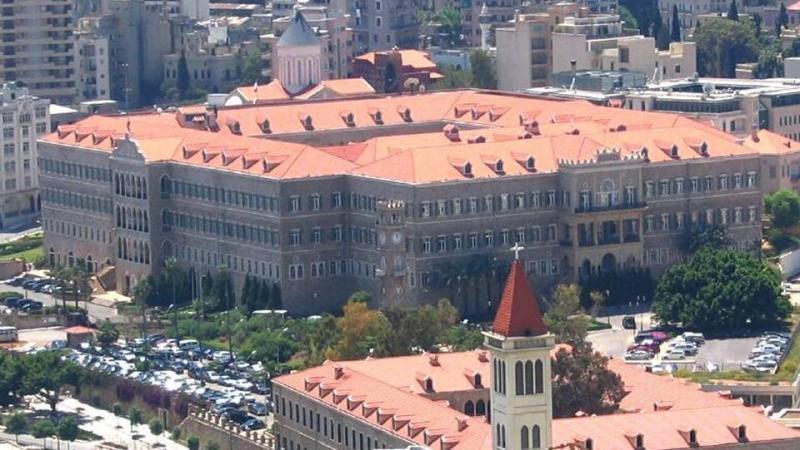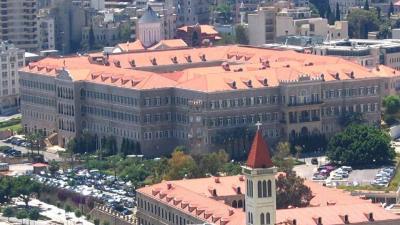During the mandatory parliamentary consultations, President Michel Aoun posed a single question to the deputies: who do you nominate for the premiership? Meanwhile, during the non-mandatory parliamentary consultations on Monday and Tuesday, the appointed Prime Minister Najib Mikati is asking the deputies themselves two questions: Do you wish to participate in the government, and what kind of government do you prefer? Of course, these questions are simple, but the difficulty lies in the answers, in the expectations, and in the possibility of responding to desires in a parliament characterized by its mosaic structure and colors, as the appointed president is well aware of from his experience.
Thus, he will not lack the possibility of preparing a government lineup that parallels the caretaker government and enjoys the acceptance of President Aoun and his team. If approved, the next step would be to prepare the ministerial statement, gain confidence, and carry out the handover between Mikati and himself. However, if convincing President Aoun and his political heir, Gebran Bassil, proves difficult, the caretaker government remains present, and Mikati stays in the governmental palace, either as an appointed Prime Minister or as the Prime Minister of a caretaker government.
According to following sources, the maximum that could be expected from Mikati is to refurbish the current government by replacing some ministers with others. The problem here lies in whether the adjustment will be broad or narrow, and whether it will include exchanging ministerial portfolios or merely replacing each team's representatives when necessary, without affecting the sectarian distribution of portfolios. This means rejecting any proposal that removes the Ministry of Finance from the share of the Shiite duo, or more specifically, from the Amal Movement.
Following sources indicate that the prevailing trend is towards a broad government adjustment, especially since appearing before Parliament to obtain confidence is inevitable. The names likely to exit the caretaker government include Foreign Minister Abdullah Bou Habib, Minister of Displaced Affairs Issam Sharafeddine, Minister of Economy Amin Salam, Minister of Energy Walid Fayad, and Minister of Administrative Development Najla Riachi.
It is estimated that Arab developments and the ongoing preparations for a summit involving Gulf Cooperation Council countries, Egypt, Jordan, and Iraq, with the participation of US President Joe Biden, necessitate a change in the direction of the Lebanese Foreign Ministry. Additionally, changing the Ministers of Energy and Economy, Walid Fayad and Amin Salam, who handle electricity, fuel, and livelihoods, could alleviate the suffering of people lining up in front of bakeries and fuel distribution stations. Furthermore, Amin Salam's own nomination for the premiership has made it difficult for Mikati to align with him.
As for the second Druze minister who will replace Issam Sharafeddine, he does not necessarily have to be from the Jumblatt family, as the Socialists say, but must be acceptable to all parties. For equality's sake, a Shiite minister should also be changed, and it seems that the choice will fall on one of two: Minister of Culture Muhammad Bassam Al-Mortada or Minister of Agriculture Abbas Al-Hajj Hassan, considering that the Ministers of Finance, Youssef Khalil, and Public Works, Ali Hamieh, are constants.
The same sources leaned towards the idea of government restoration within this framework, preserving the presence of the Free Patriotic Movement, because in the event of forming a new government, it would be difficult for the appointed president to include a team that wasn't mentioned in the consultations to avoid losing supporters on the other side.
Political analyst, lawyer Joseph Abu Fadel, predicted on "Al-Jadeed" channel that a Mikati government will not come easily, expressing surprise at Bassil's remarks about Mikati and questioning the head of the Free Patriotic Movement about the $25 billion that vanished from Electricité du Liban, suggesting that all parties would participate in the government since it is the government of the presidency.
For his part, Maronite Patriarch Bechara Al-Rahi emphasized Lebanon's need for "a renewed leadership characterized by responsibility, awareness, and courage to initiate reforms in the most urgent sectors, and above all, Lebanon needs political stability." He added, "No one is stronger than God, neither by influence, authority, money, arms, nor arrogance, calling for the formation of a government that bears executive responsibility and for a new president to usher in a constructive path."
Similarly, the head of the Lebanese Forces, Dr. Samir Geagea, stressed the necessity of conducting presidential elections at the beginning of the constitutional period, after the President lost the opportunity to save the country. The following sources expect the government lineup to be finalized before the Eid al-Adha holiday, and if that does not occur, it would mean that things are more complicated than they appear at first glance.
However, there is an additional factor to consider: the Gulf-Arab-American summit in mid-July, which requires Lebanon to have an effective government, at least, since the summit will address issues related to Lebanon.




